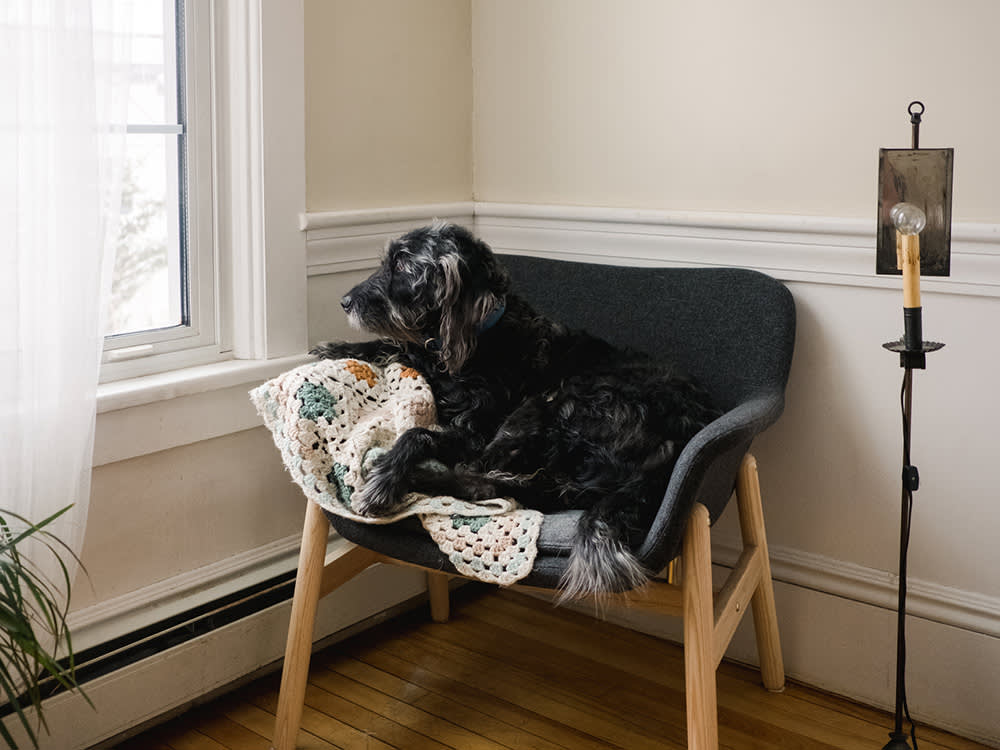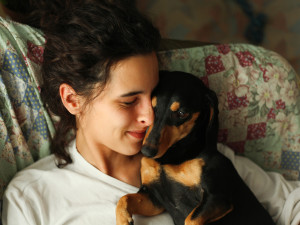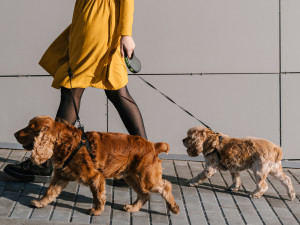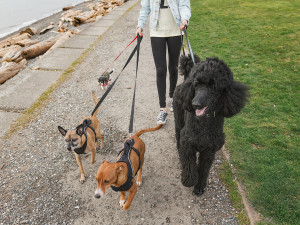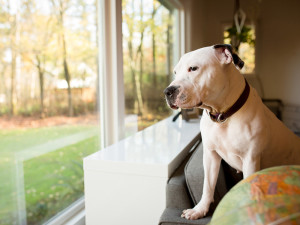Celeb Dog Trainer Nicole Ellis on Getting Your Dog Used to Your Office Return
It’s 2023, and the office is calling. How can our dogs cope?
One of the rare positives of the pandemic was that working from home really meant working with pets. No more saying goodbye in the morning and coming home at the end of the day. Now we were together 24/7. There were lots of new pets, too, as humans had more time and presence to take on animal companions. Now it’s 2023, and your work probably has you coming back to the office at least a few times a week, if not every day. But how has your dog been handling that?
The last three years were filled with new routines and more bonding time because those work from home schedules were flexible. But now that most of us have returned to the office, this shift can be both confusing and stressful for our pets. Your dogs don’t understand that your boss is requiring you to come in and really don’t get why you aren’t going to be snuggling during your lunch hour.
Before you get too worried about all this, let’s go over a few things we can do to help set our pets up for success while you’re away all day.
Establish a Routine
First off, pets love exactly that: routine. Start to get your pet settled on your new weekday timeline. Answer these questions: What time will you be getting up in the morning? What time will your pets be eating their breakfast? How about dinner? When and where do the walks fit in? If you can make the switch to the new normal schedule while you’re still working from home, you’ll have a smoother transition. This way, from your dog’s point of view, most things won’t change at all when you go back to commuter life.
Keep Things Calm
Pets can be very sensitive to your getting-ready-for work rituals, if you can call rushing around the house looking for your phone, keys, etc. a ritual. But this can cause as much anxiety in your pets as it does in you. Again, the key is to normalize and relax and not always associate these things with leaving for the day. So. pick up your keys and walk around the house. Put your coat on and then sit on the sofa. Grab your backpack and go back to the kitchen. This will decrease the anxiety your pet feels when he sees you’re leaving.
Keep Their Brains Working
Make the pre-work mornings about mental enrichment. You’ve probably heard dog trainers talk about the benefits of keeping your dog’s brain engaged. Mental stimulation helps a dog decompress and burn off excess energy. By the time you leave for the office, your dog will be ready for a good long nap. Kongs and lick mats encourage licking and chewing, which are activities that reduce stress and anxiety (do they make Kongs for humans?). Fill a Kong with peanut butter or favorite treats at night, put it in the freezer and give it to your dog in the morning to help them de-stress before you hit the road.
How much do you spend on your pet per year?
Take Care of Yourself, Too
Now we need to talk about your separation anxiety. You’ll be at work and mildly freaked out over not knowing what your dog is doing. If you’re a worrier or just someone who likes to see their dog, you can set up a pet camera for remote viewing. I have a pet camera in my house that alerts me to my dogs’ barking and activity. You’ll be able to see for yourself if your dog is barking and pacing, which are signs of stress or do they just sleep all day?
Get a Dog Walker
If you think your dog needs a potty break in the day or if they need more exercise or company, consider a dog walker or day care. It’s a good idea to have a dog walker come a few times a week, especially if your work days are really long or unpredictable. Just remember that it is an adjustment and it will take some time. If slowly let your pet (and yourself) get used to your return to 9-5, you’ll both be set up for success.
